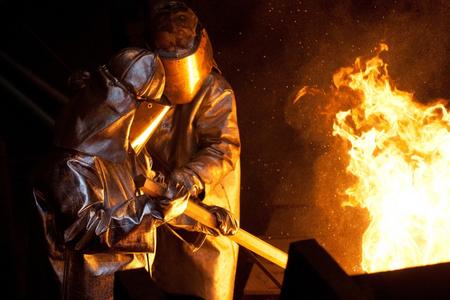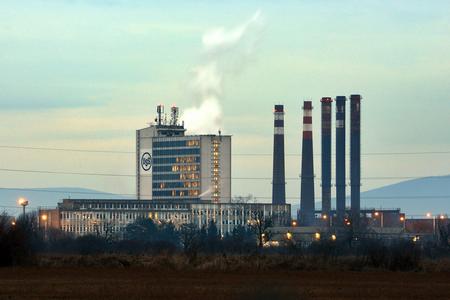Košice-based steelworks will shorten its working week again after two months, cutting its expenses on salaries, the Sme daily reported.
The U.S. Steel Corporation will restrict the production of its plants in the United States and Europe after its untaxed profit in the second quarter of the year amounted to just €221 million, instead of the expected €257 million.
The decision comes after U.S. Steel Košice trade unions ended their strike alert by making a deal with the management over increasing the monthly salaries by €40, Sme wrote.
One blast furnace idled
U.S. Steel Košice already idled one of its three blast furnaces, whose total capacity is 4.5 million tonnes of raw iron a year, on June 20. Since iron production will drop by one-third, the management agreed with the trade unions on shortening the working week to four days, starting in July. For now, the measure is in place only for one month, Sme wrote.

Employees will receive 60-percent salary compensation for the day they stay at home. The steelworks promises that they will learn more details and conditions via internal communication.
“The measure will concern all employees, with the stress on employees safety and securing the necessary operational activities,” said U.S. Steel Košice’s spokesperson Ján Bača, as quoted by Sme.
The trade unions are ready to meet with the steelworks’ management in late July to discuss the situation.
No mass layoffs planned for now
Resulting from the changes, the July payroll of the employees will drop by 6 percent on average. A manual worker earned nearly €1,750 a month gross last year.
U.S. Steel Košice spent nearly €300 million on salaries in 2018, an increase from previous years due to the salary hike and higher work surcharges, which will impact costs this year as well.

At the same time, the prices of steel on global markets are falling.
“If the problems in the steel market continue, it may result in worse economic results of the company and employment,” Mário Jičinský, analyst with Capital Markets, told Sme.
For now, the company is not discussing the possibility of mass layoffs. One possible solution is encouraging older employees to retire without hiring any replacements, Juraj Varga, head of the local trade unions, told the daily.


